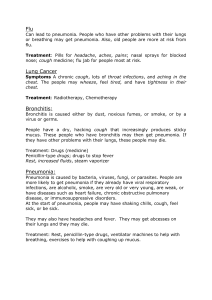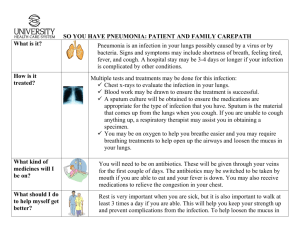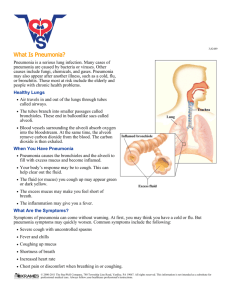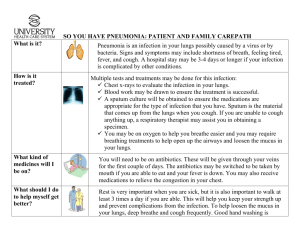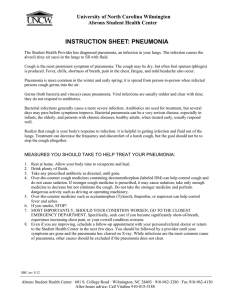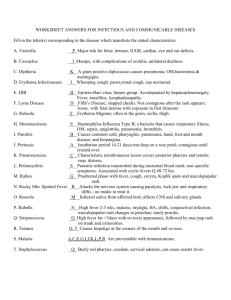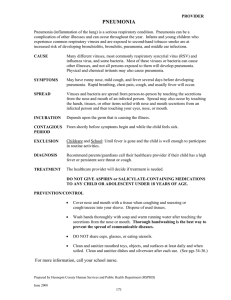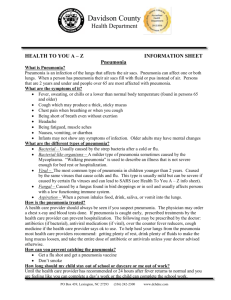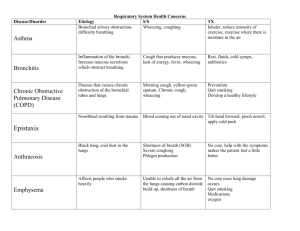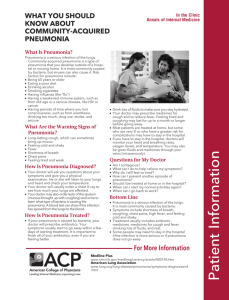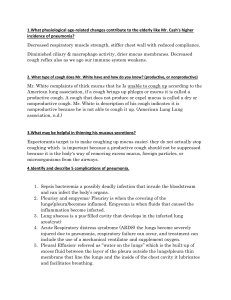Pneumonia
advertisement
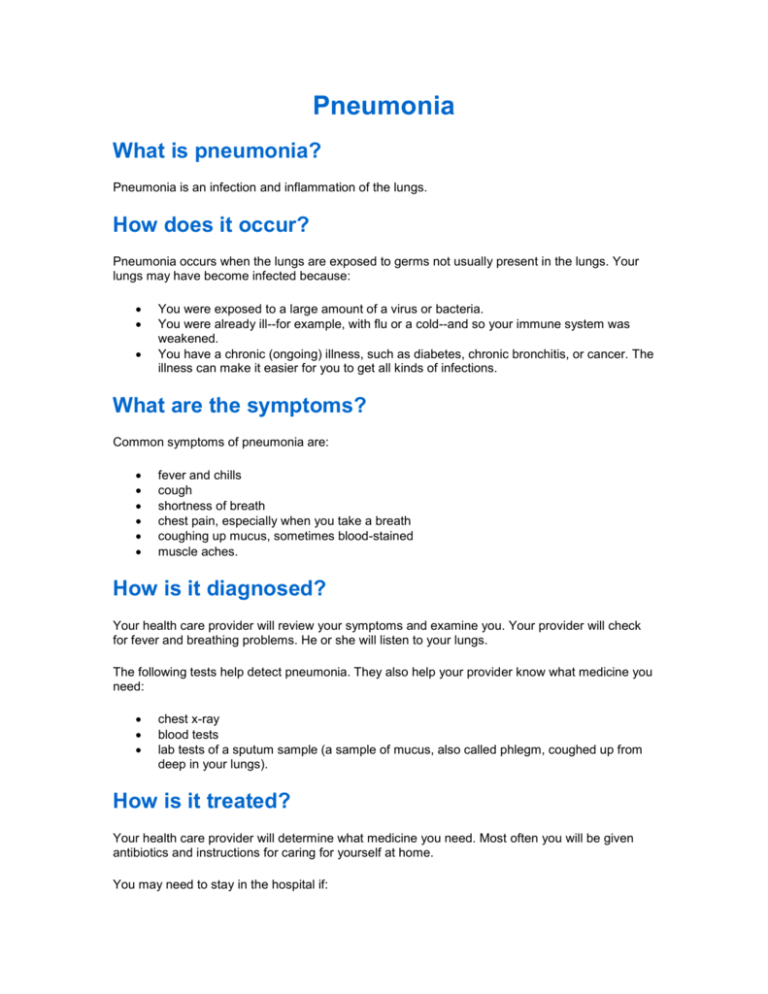
Pneumonia What is pneumonia? Pneumonia is an infection and inflammation of the lungs. How does it occur? Pneumonia occurs when the lungs are exposed to germs not usually present in the lungs. Your lungs may have become infected because: You were exposed to a large amount of a virus or bacteria. You were already ill--for example, with flu or a cold--and so your immune system was weakened. You have a chronic (ongoing) illness, such as diabetes, chronic bronchitis, or cancer. The illness can make it easier for you to get all kinds of infections. What are the symptoms? Common symptoms of pneumonia are: fever and chills cough shortness of breath chest pain, especially when you take a breath coughing up mucus, sometimes blood-stained muscle aches. How is it diagnosed? Your health care provider will review your symptoms and examine you. Your provider will check for fever and breathing problems. He or she will listen to your lungs. The following tests help detect pneumonia. They also help your provider know what medicine you need: chest x-ray blood tests lab tests of a sputum sample (a sample of mucus, also called phlegm, coughed up from deep in your lungs). How is it treated? Your health care provider will determine what medicine you need. Most often you will be given antibiotics and instructions for caring for yourself at home. You may need to stay in the hospital if: You are having a lot of trouble breathing. It's hard for you to drink enough fluids. You have no one to care for you at home. If you are hospitalized: You may be given oxygen. You may be given IV (intravenous) fluids. You may be checked often by nursing staff. Electronic equipment will check your pulse and oxygen levels. You may have x-rays taken several times. How long will the effects last? Usually you will begin to feel better after 2 to 3 days of antibiotics. If you are an otherwise healthy person, you should feel close to normal after a week or so. If you are over 60 years old or have other medical problems, it may take longer to feel normal. How can I take care of myself? Start taking your medicine right away and follow the treatment your health care provider prescribes. Rest until you no longer have a fever, chest pain, or shortness of breath. Follow your health care provider's instructions for returning to activities such as school, work, or recreation. Drink more liquids (water, tea, or fruit juice) every day to help you cough up mucus more easily. Drink at least 2 quarts of liquids unless your health care provider has given you different instructions. Cough up lung secretions as much as possible. Use cough medicine only if your cough is dry and your provider recommends you use it. Use a humidifier to increase air moisture. Avoid steam vaporizers because they can cause burns. Ask your provider about taking aspirin, ibuprofen, or acetaminophen for fever or chest pain. Use a heating pad on a low setting to reduce chest pain. Be careful not to fall asleep while you are using the heating pad. Call your health care provider if you feel you are getting worse or if you are not getting better in 2 to 3 days. How can I help prevent pneumonia? Don't smoke. Get a flu shot every October to protect against flu. Get the pneumococcal pneumonia vaccine (Pneumovax) if you have a chronic illness or are over age 65. Eat a healthy diet. Exercise according to your health care provider's advice. Practice good hand-washing habits when you are around sick people or in public. Also wash before you eat or drink.
